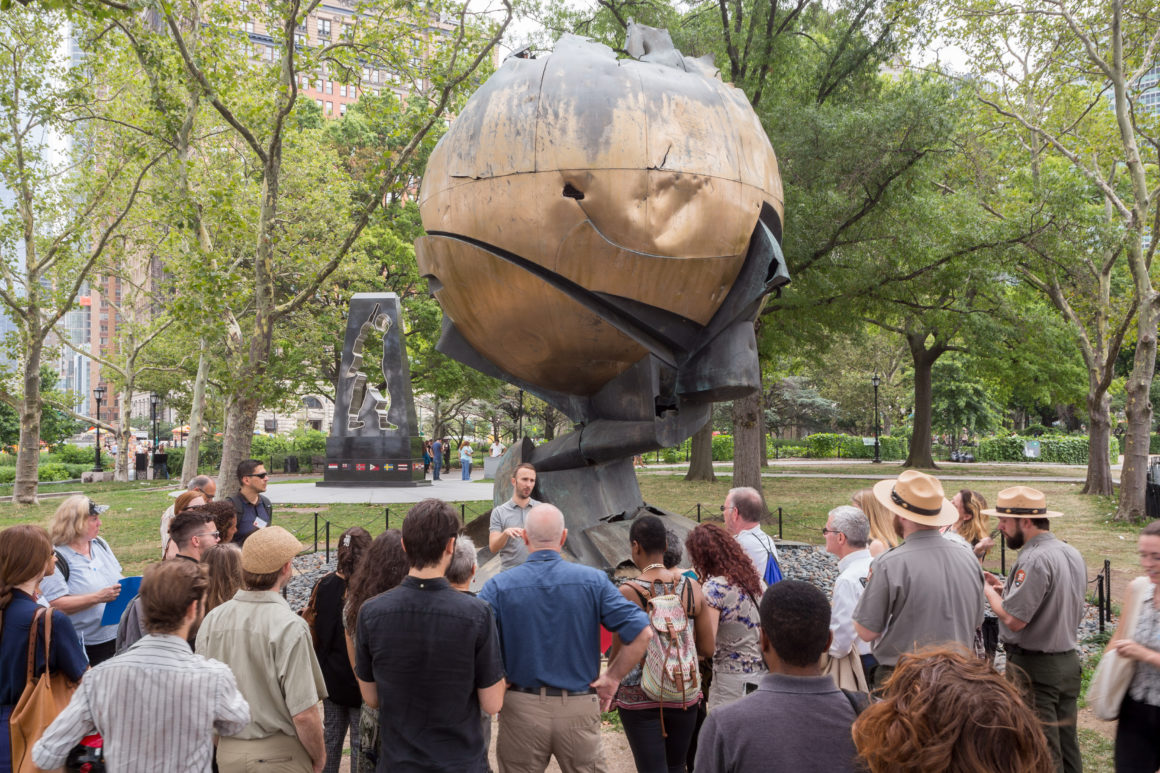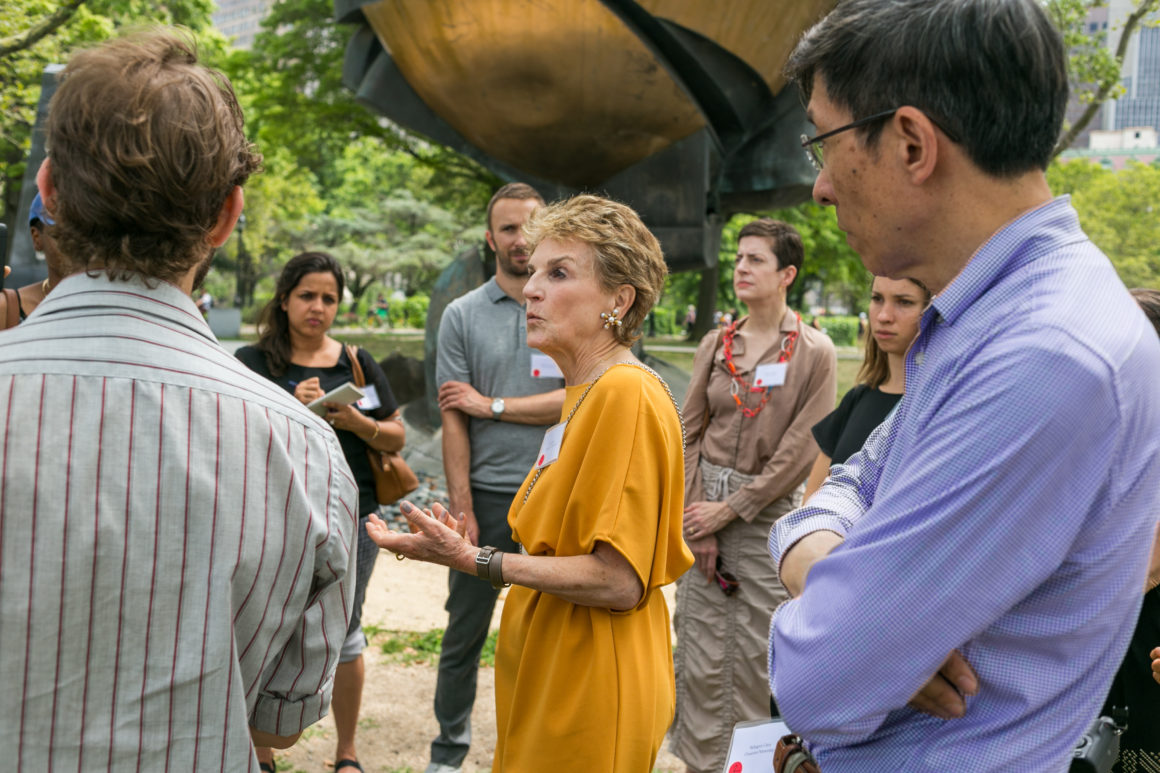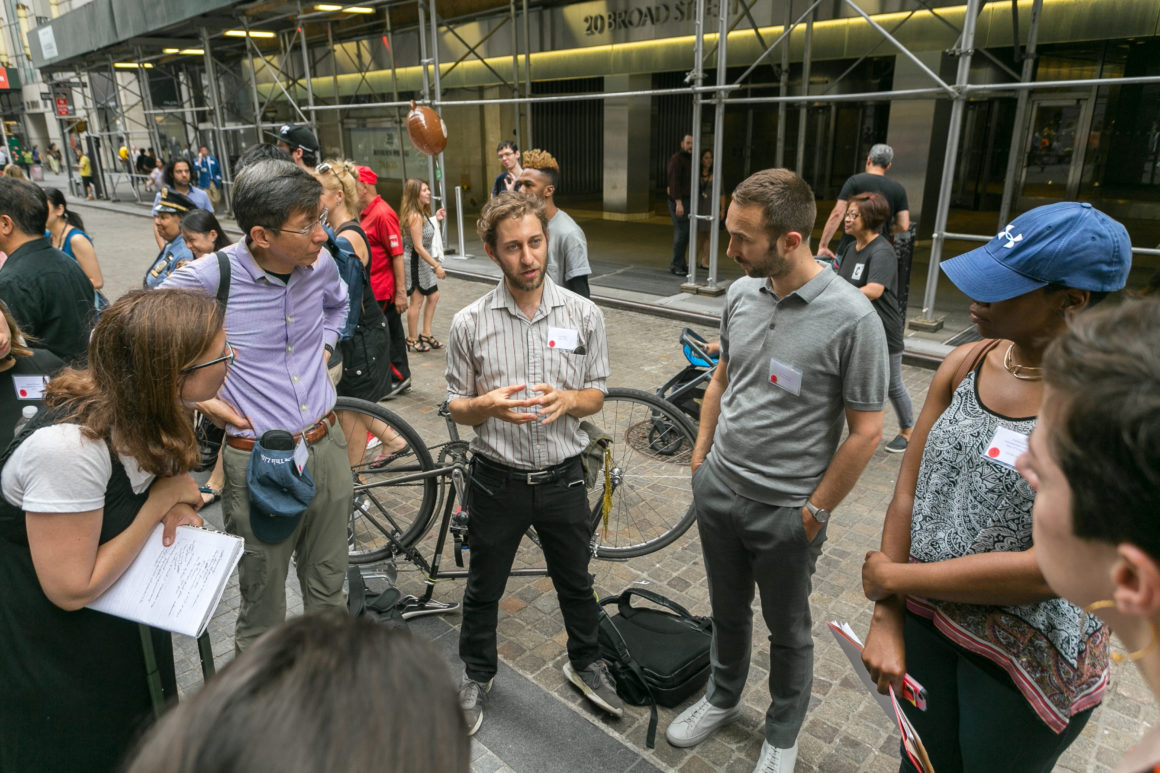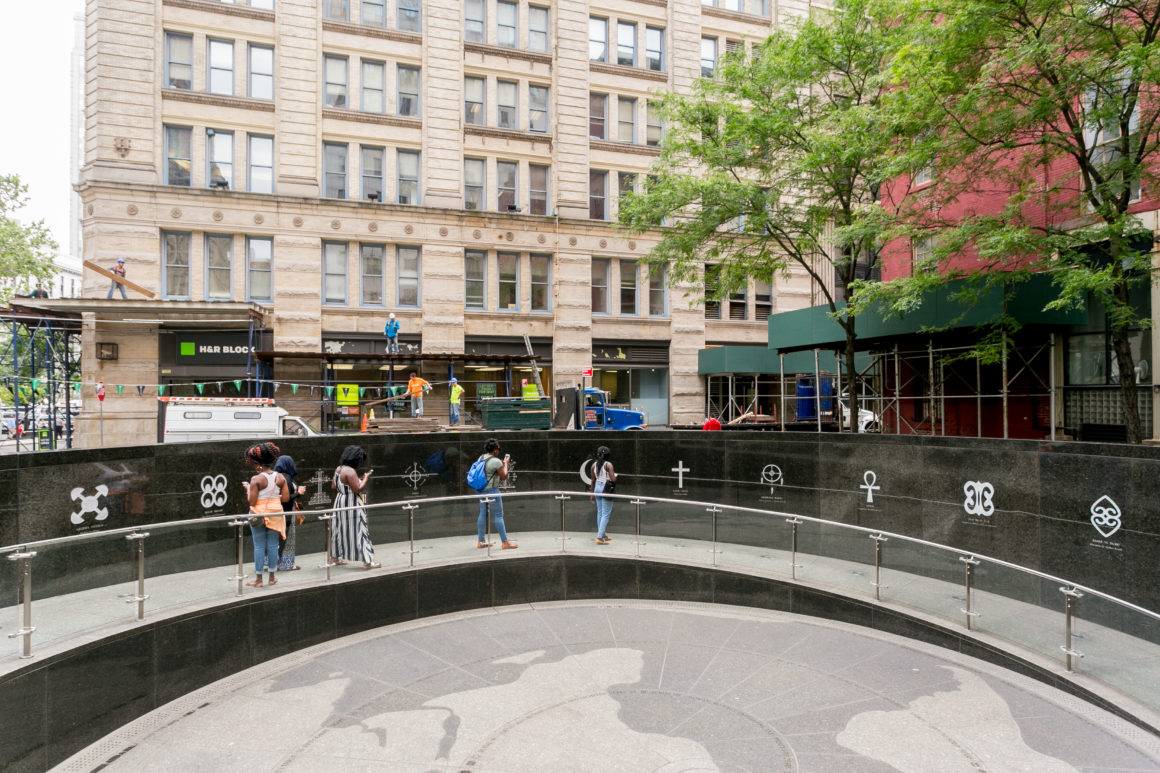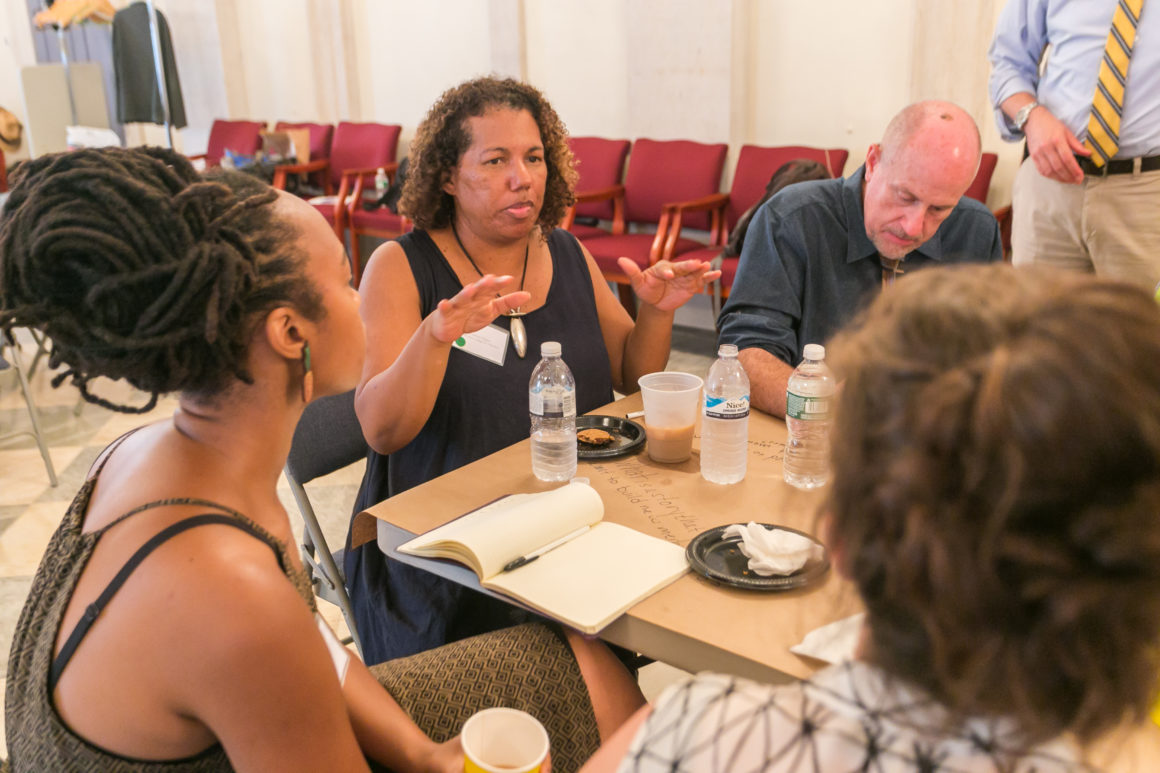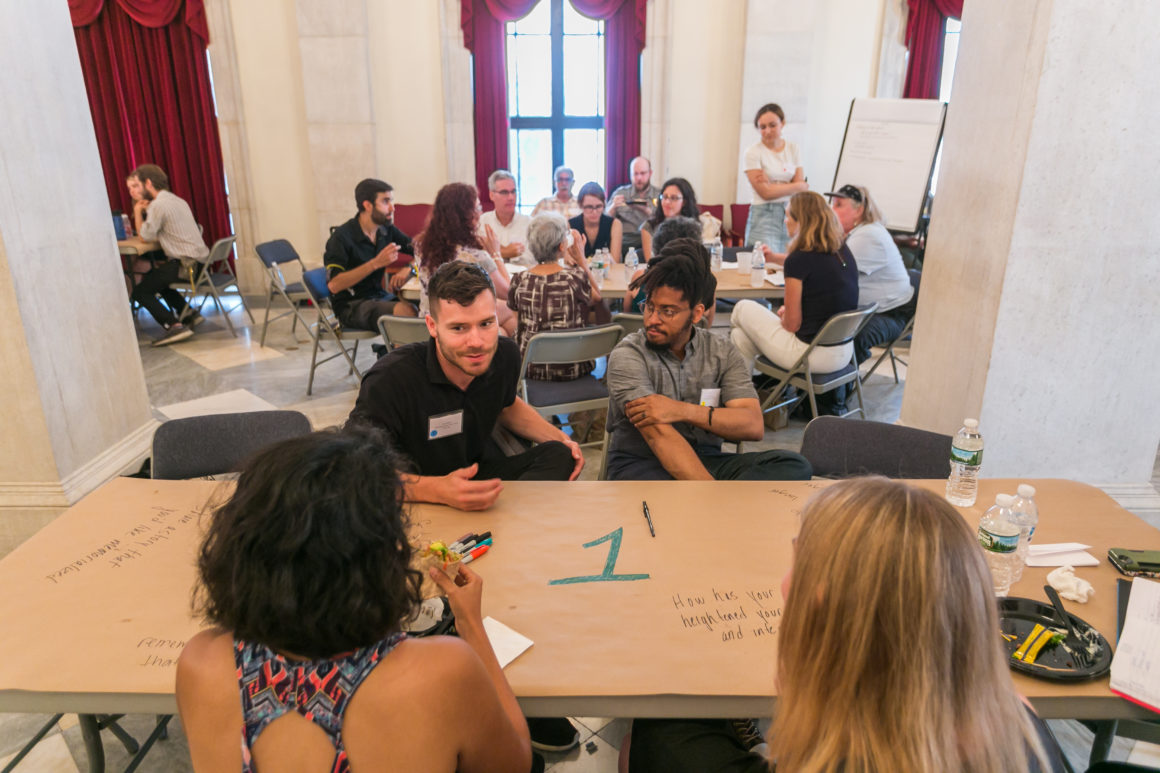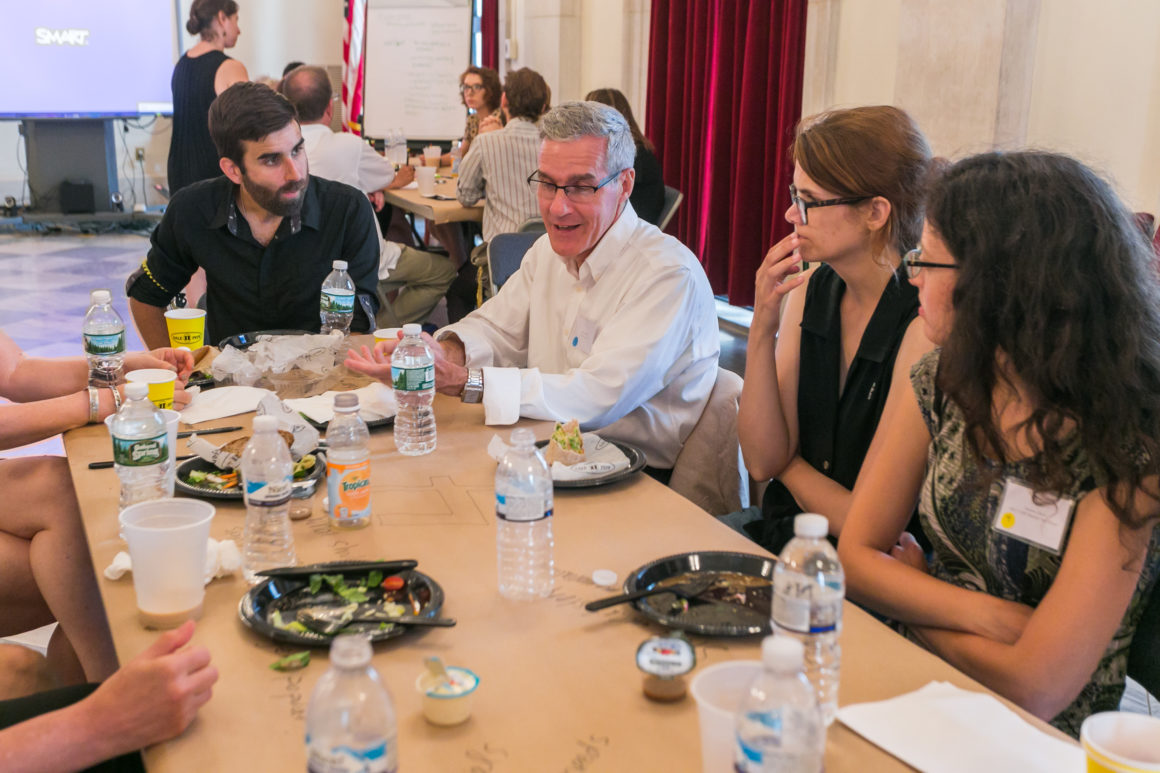Memorials are a tangible reminder that an individual, place or history matters. They take different forms, speak to individuals and to collectives, and emerge from both grassroots and state levels. Yet, their significance changes with time. There is growing need to both re-contextualize today’s memorials to actively include the missing narratives of underrepresented groups, as well as rethink how and what we commemorate in the future. How can future memorial makers effectively memorialize amidst changing contexts, and how can they encourage more inclusive, participatory acts of memorialization?
To engage these questions, Van Alen Institute and the National Park Service held a workshop on nontraditional modes of memorialization in New York. The afternoon involved a guided walking tour of Lower Manhattan by Sites of Conscience and a facilitated dialogue at the Federal Hall National Memorial. Participants had a range of disciplinary backgrounds and engaged in nuanced discussions, all while viewing sites such as The Sphere in Battery Park and a live Ghost Bike installation.
The walking tours branched out from Battery Park to cover the New York City Stock Exchange, African Burial Ground, Ghostbike installation at Chambers St. and West Side Highway and Federal Hall National Memorial. Site experts, individuals with unique connections to the place or narrative, were stationed at each stop and encouraged participants to question whether the site supported or challenged their understanding of memorials.
The afternoon workshop included an address from Joshua Laird, Commissioner, National Parks of New York Harbor at National Park Service, and engaged participants in a series of questions, listed below:
- What mattered to you this morning?
- How have you memorialized a person or event worth remembering?
- What mattered to you this morning?
- How have you memorialized a person or event worth remembering?
- What is a story that you want to build new memorials to?
- How has your identity heightened your awareness and interaction with memorials?
- How do we memorialize imperfection?
- How do we balance a groups need to remember against the impact of that memory on others?
- Do memorials keep history relevant?
- What is the threshold of significance for memorialization?
- What should we do when a monument is no longer significant? Or no longer popular?
- Should memorials change as our needs change?
- What are 3-5 tips for anyone thinking of creating a memorial?
Each table was asked to report back key takeaways from their discussion to close the afternoon.
Click here to read more about Memorials for the Future: Our design competition in Washington, DC that inspired this workshop. The winners of the competition will exhibit their innovative memorial to a cause of their choice at the Kennedy Arts Center in Washington, DC. Van Alen will synthesize their key findings into a multimedia report to be made accessible to all participants.
Participants
Cathleen Wiggins, Bank Street College of Education
Kamau Ware, Black Gotham Experience
Anna Schwartz, Brooklyn Historical Society
Wellington Chen, Chinatown Partnership
June Williamson, CUNY Spitzer School of Architecture
Aviva Davidson, Dancing in the Streets
Mirza Molberg, Ghost Bikes
Carlos Martinez, Hibridos Collective
Lisa Merrill, Hofstra University
Sarah Pharaon, International Coalition of Sites of Conscience
Tramia Jackson, International Coalition of Sites of Conscience
Catherine Hughes, Manhattan Community Board 1
Justine Holzman, Memorials for the Future Team: DHLS
Halina Steiner , Memorials for the Future Team: DHLS
Michelle Lin, Memorials for the Future Team: Honoring the Journey
Radhika Mohan, Memorials for the Future Team: Honoring the Journey
Troy Hillman, Memorials for the Future Team: Talk Talk
Wendell Walker, Museum of the Moving Image
Catherine Turton, National Park Service
Bonnie Halda, National Park Service
Dennis Montagna, National Park Service
Alaina McNaughton, National Park Service
Frank Hays, National Park Service
Christine Arato, National Park Service
Amy Weinstein, National September 11 Memorial & Museum
Angelyn Chandler, NY State Parks
Sreoshy Banerjea, NYC EDC
Amanda Davis, NYC LGBT Historic Sites Project
Ahmed Tigani, Office of the Manhattan Borough President
Lucian Reynolds, Office of the Manhattan Borough President
Kathleen Hulser, Pace University, Museum of the American Gangster
Peter Rothenberg, PortSide New York
Robin Berson, Remember the Triangle Fire Coalition
Joel Sosinsky, Remember the Triangle Fire Coalition
Josh Bisker, Right of Way
Michael Burke, Save the Sphere
Warrie Price, The Battery Conservancy
Amaka Okechukwu, Weeksville Heritage Center
Claire Agre, West 8 Urban Design & Landscape Architecture
